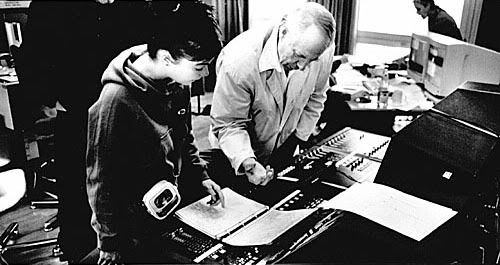
A nice little follow-up to our previous set of readings, that at last fulfills something of a desire to have these two generations of electronic musicians actually talk together, at least in the context of interview if not full-on discussion. This interview is from "Dazed and Confused" (#23 1996), and it's called "Compose Yourself," Introduction and Interview by Björk.
http://home.concepts.nl/~sinned/d23.htm
http://home.concepts.nl/~sinned/d23.htm
2 comments:
This kind of material is very inspiring to me as a musician struggling to understand and write my own songs. You can even ask my family... I complain constantly about not being able to write something that is innovative and non-cliche because I have a hard time breaking out of my formal teaching of unchanging 4/4 time beats organized "perfectly" throughout the song. It seems to me that Bjork herself found herself struggling with some of the same issues, trying to figure out how to innovate, picking Stockhausen's mind to see where his ideas come from and why his rhythms are so irregular... obviously Bjork figured it out eventually. Hopefully the same will be true in my case.
It was interesting and comforting to hear Bjork's concerns. I too struggle with impatience towards my creative endeavors considering how short life is (and how quickly two years of graduate school will fly by). I need to learn how to sit in my chair as well! Stockhausen's response seemed a bit aloof and unrealistic. Perhaps he is a lucky soul and honestly never struggles with this panick, but it seems this is a feeling that's hard to escape as an artist.
I found the radiolab podcast fascinating... especially the perfect pitch section and how our atonal language can effect our musical/pitch abilities. I guess this makes sense. However, I think Diana Deutsch could have furthered her research by studying additional cultures and additional factors. I feel many more social and cultural factors could be playing into the drastic results of this study.
In addition, the podcast begins with Deutsch noticing how even spoken English can sound like a song using many different tones. This is heightened by repetition and taking the speech out of context. This somewhat defuses her argument. The following section on Anne Fernald's research does this as well. We hear parents speaking to babies in many different languages (including English) yet a universal pitch and rhythm is being used. These languages may not be as tonal as Mandarin, yet they are still rich in tone.
Post a Comment